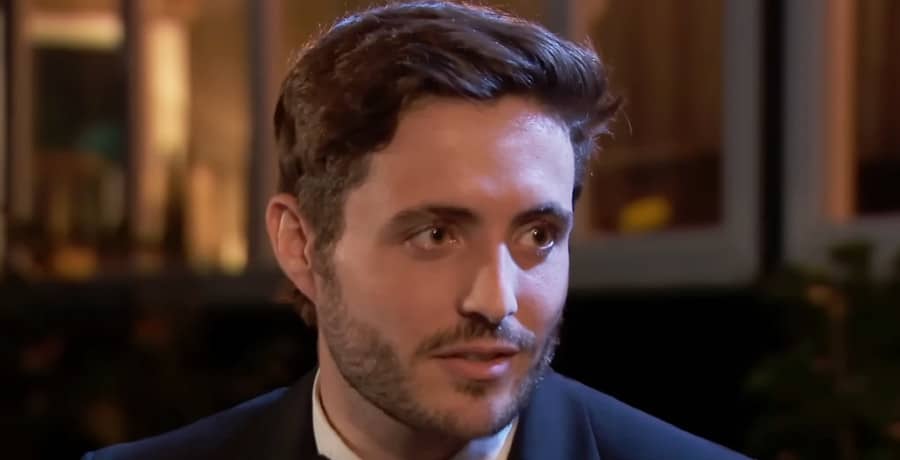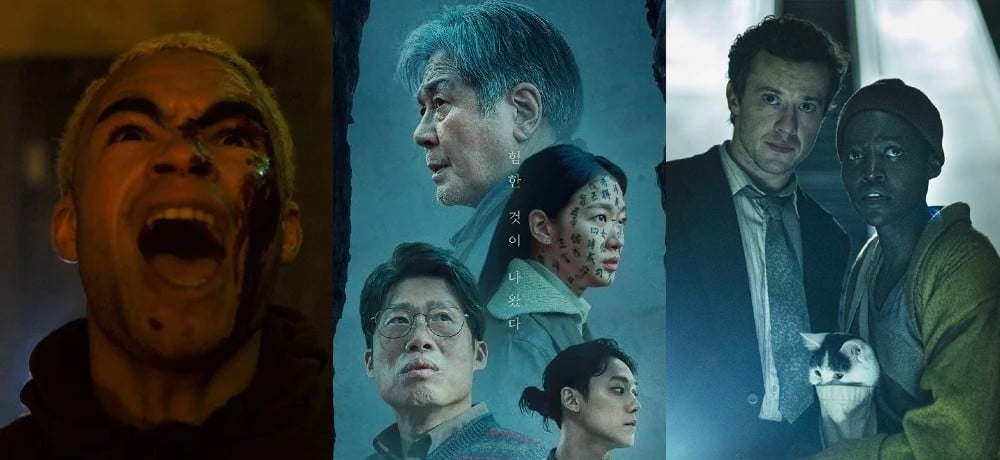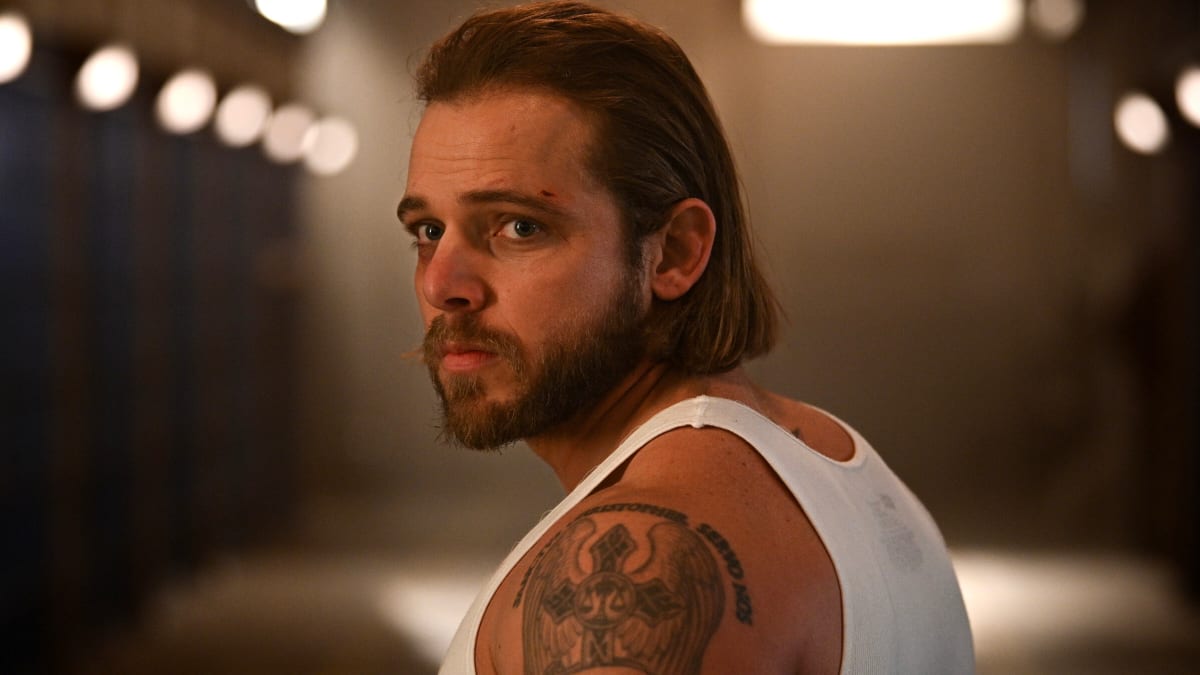Venice 2024: Brady Corbet’s ‘The Brutalist’ is a Cinema Masterpiece
by Alex Billington
September 1, 2024
There are moments as a film geek where right in the middle of a film festival screening you are overtaken by the overwhelming feeling that you are watching something that will go down as a major moment in cinema history. It’s not often we are lucky enough to encounter such phenomenal filmmaking. It is not often that we are treated to the majesty of cinema that is so profound and powerful it shakes the very foundations of art as we know it. When these rare moments come along, it is vital to relish and speak out passionately about the power that truly majestic cinema can have over us. American filmmaker Brady Corbet’s third feature film The Brutalist is one of these major moments in cinema. I sat in the cinema stunned, watching the credits scroll by, unable to say much or pick myself up. There were a few moments I was holding my breath, other scenes where my heart was racing. It may seem hyperbolic to write all of this, but everyone once in a while it really is accurate to say that every single shot is perfect and there’s nothing to criticize with a film. There’s plenty to discuss, a few things to debate, but it’s time to state for the record: The Brutalist is a masterpiece.
Co-written by Brady Corbet and his partner Mona Fastvold, and directed by Brad Corbet, The Brutalist is a sprawling, grand, epic story similar to There Will Be Blood in a cinematic sense. The story follows a talented Jewish Bauhaus architect who arrives in America at the end of WWII and attempts to build a new life there. But he encounters the rotten underbelly of America. Corbet is known for telling stories that are meticulously intellectually critical of American Capitalism and other aspects of America that many people see as defining features of the country (see his second film: Vox Lux). This time his novelistic tale of American greed and American xenophobia is based around the journey of a Holocaust survivor who shows up hoping to do some work and move on with his life, only to encounter hateful, spiteful people who exploit and abuse him. Even when he does nothing wrong, he’s in the wrong, just because he’s a foreigner with a accent. Adrien Brody stars as László Tóth, in yet another unbelievably extraordinary performance in his already excellent oeuvre. Brody brings us along in his painful, yet exuberant journey through America, hoping to build something and start a new life after the horrors of WWII in Europe. He’s matched by Guy Pearce as the wealthy investor Harrison Lee Van Buren in what is one of Pearce’s best performances ever. I’m still in awe of both of them.
Every single shot is breathtaking. With exhilarating cinematography by DP Lol Crawley, the film is shot on VistaVision, which was the high def film format from the time (pre-dating 70mm) that film takes place in. Brady Corbet wanted the film to look and feel like it was made right in the 1950s, and it was projected in our cinema on 70mm film as well (which feels like stepping back in time). I could teach an entire course on the cinematography, from the train shots to the architectural focus and everything else. The score by newcomer young composer Daniel Blumberg is phenomenal as well, bringing classical elements from the era making the score feel grandiose and emotional, along with gripping percussive underscoring that adds more depth to the quiet scenes as the story builds & builds. The sound design is also outstanding, utilizing atmospheric noises that at times puts viewers on edge, other times letting us to settle into the environment and bring us deeper into this narrative. This is Corbet’s finest work yet. Right from the opening – a dizzying, eye-opening five minute intro sequence that launches us into the film, and it never lets up. Every frame of this is going to be studied in cinema courses for decades. I can rave about this shot, or that shot, or this sequence, or this decision, or that moment or motif, or that pan, or that tilt. Technical mastery on every level in every frame.
There is one element of exceptionally great cinema that keep coming back to time and time again (especially at film festivals). Films that are this outstanding are the kind of films that encourage conversations that can go on for hours, days, weeks, even months or years. Not only is it about analyzing decisions in each scene, understanding the story and its progression, making sense of this idea or that choice. It’s any conversation, they way any tiny scene or a distinct moment can linger in your mind for months after… The way you can analyze and critique and think differently about what is going on in the film; perhaps this scene isn’t what you thought it was at first. The Brutalist is fairly clear in its intentions overall with its story follow architect László Tóth, but it’s such a sprawling & grand & glorious masterpiece of cinema with a full 3 & 1/2 hours of footage, there’s an enormous number of shots that can and must be analyzed further. One amusing moment in particular rattles in my brain – early on László is walking down a street after picking up and hugging a cat and the cat follows him along for another 30 seconds, meowing along the way. Was this planned? Did this cat just happen to do that and they caught it on camera? Does that cat mean something or was it just a cute cat? (Please don’t over-analyze my thinking on this I just enjoyed seeing a cat in the film for a quick scene.)
There’s one amazing sequence in the second half involving a trip to a marble quarry in Italy that I would say might just be one of the greatest ~20 minute sequences in cinema history. Not even exaggerating at all, this is not a hyperbolic claim. Every last detail, from the sound to aura in this sequence, is jaw-dropping, soul-stirring exquisite. It’s magical. This is the glory of transcendent cinema. There are these moments in history where you can feel you are witnessing something profound and dramatic that will have a major impact on art forever. Storytelling and filmmaking must combine in just the right way, with a vision that is strong and daring and intelligent, to potentially change the way everyone sees the world. Brady is courageous enough to tell us the truth about how rotten America and Americans can be, and this story can teach us that we must be better, even 80 years after WWII ended. It is rare that a film makes your heart pound even faster with every new scene… It is rare that a film gives you chills with every new shot… It is really, really rare and The Brutalist is one of those one-of-a-kind films we will be celebrating for decades to come. Bravo, Brady, bravo.
Alex’s Venice 2024 Rating: 10 out of 10
Follow Alex on Twitter – @firstshowing / Or Letterboxd – @firstshowing






























